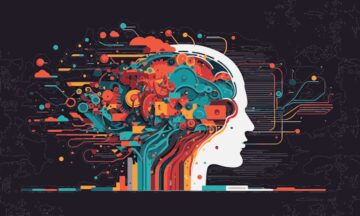Steve Paulson in Nautilus:
 These days, we’re inundated with speculation about the future of artificial intelligence—and specifically how AI might take away our jobs, or steal the creative work of writers and artists, or even destroy the human species. The American writer Meghan O’Gieblyn also wonders about these things, and her essays offer pointed inquiries into the philosophical and spiritual underpinnings of this technology. She’s steeped in the latest AI developments but is also well-versed in debates about linguistics and the nature of consciousness. O’Gieblyn also writes about her own struggle to find deeper meaning in her life, which has led her down some unexpected rabbit holes. A former Christian fundamentalist, she later stumbled into transhumanism and, ultimately, plunged into the exploding world of AI. (She currently also writes an advice column for Wired magazine about tech and society.)
These days, we’re inundated with speculation about the future of artificial intelligence—and specifically how AI might take away our jobs, or steal the creative work of writers and artists, or even destroy the human species. The American writer Meghan O’Gieblyn also wonders about these things, and her essays offer pointed inquiries into the philosophical and spiritual underpinnings of this technology. She’s steeped in the latest AI developments but is also well-versed in debates about linguistics and the nature of consciousness. O’Gieblyn also writes about her own struggle to find deeper meaning in her life, which has led her down some unexpected rabbit holes. A former Christian fundamentalist, she later stumbled into transhumanism and, ultimately, plunged into the exploding world of AI. (She currently also writes an advice column for Wired magazine about tech and society.)
When I visited her at her home in Madison, Wisconsin, I was curious if I might see any traces of this unlikely personal odyssey. I hadn’t expected her to pull out a stash of old notebooks filled with her automatic writing, composed while working with a hypnotist. I asked O’Gieblyn if she would read from one of her notebooks, and she picked this passage: “In all the times we came to bed, there was never any sleep. Dawn bells and doorbells and daffodils and the side of the road glaring with their faces undone …” And so it went—strange, lyrical, and nonsensical—tapping into some part of herself that she didn’t know was there.
More here.
